What human foods can ferrets eat?
Ferrets are very active animals and require regular meals for their maintenance, but have you ever wondered what human foods can ferrets eat?
Typically, ferrets are pure carnivores and there are not many human foods that they should consume, however, the ones that they can eat are mostly of meat origin including chicken, fish, lamb, beef, eggs, etc.
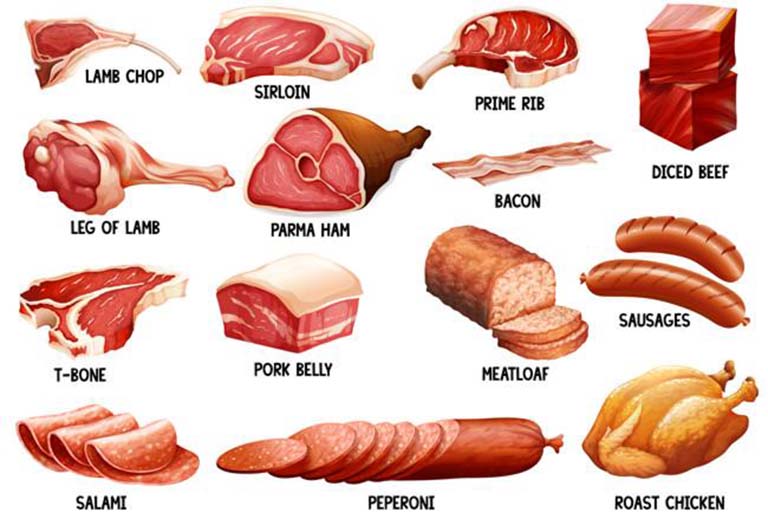
As a ferret owner, it is very important to know which human foods are safe for your furry friend, and as a veterinarian, I will explain all of it to you so read on to know more about the human foods that are healthy and safe for ferrets. Let’s take a look at what human foods ferrets can eat.
Human Foods Healthy And Safe For Ferrets
Due to the fact that ferrets are wild animals and their stomachs are not designed to digest anything other than protein and fat, there are generally very few human food options that can be added to their diet.
Human foods such as dairy products, fruits and vegetables, and sweet snacks can be harmful to ferrets and cause stomach upset. Ferrets can only eat meat, which includes fish, poultry, game, beef, lamb, and so forth. Ferrets should only be fed raw meat; any type of preserved, cured, or flavored meat is unsafe for them.
Ferrets can also be given cooked or uncooked eggs. Make sure the fish you are feeding to ferrets doesn’t have many bones because these can hurt or choke them. Cooked bones can also be given to ferrets. Keep in mind that larger bones such as leg-bones should be cracked open enough to give them a starting point
Human foods that are safe for ferrets to eat are given below:
- Beef
- Lamb
- Chicken
- Pork
- Turkey
- Fish
- Duck
- Pigeons
- Quail
- Eggs
Can Ferrets Eat Bacon
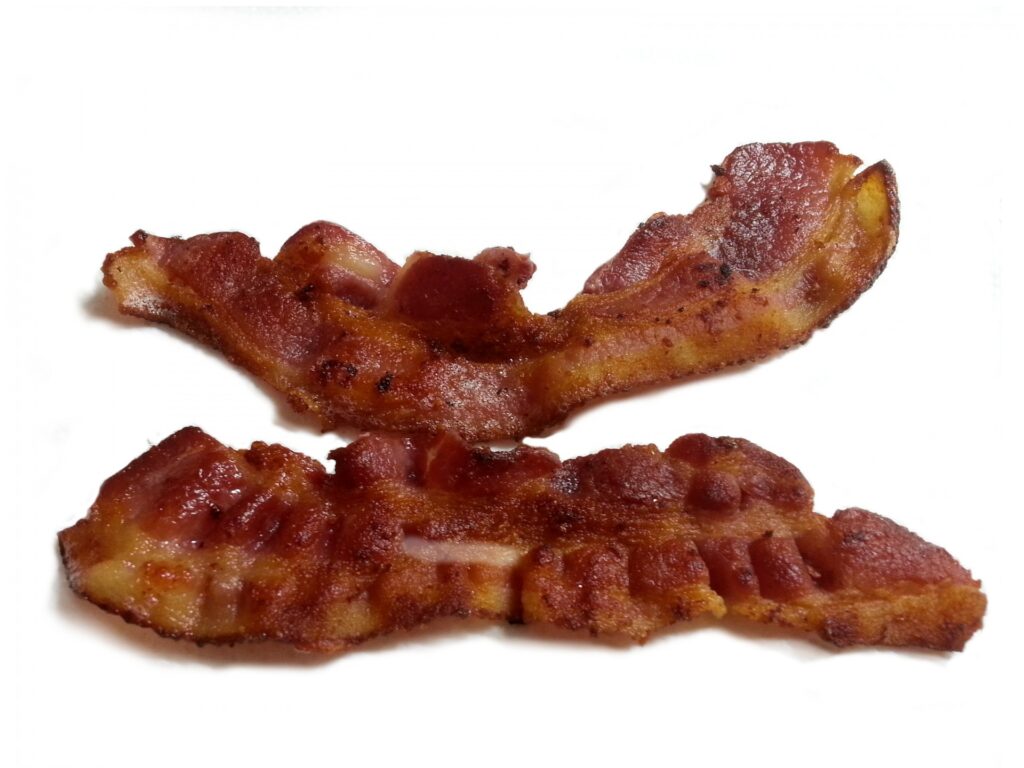
Ferrets are carnivorous animals and they can surely eat bacon but it is not highly recommended to feed bacon to ferrets. As you are aware, bacon is a type of processed meat that frequently contains salt and sugar, both of which are indigestible to ferrets. Additionally, these seasonings can make ferrets sick by causing diarrhea and high blood sugar levels.
A ferret’s stomach is developed to digest raw meat, so if you have an excess of purely raw bacon, you can feed it to them, but only in a limited quantity because it is high in fat. Bacon that has been fried or cooked is not something you should give to ferrets because it could seriously harm their health.
Can Ferrets Eat Tuna Fish
Ferrets can occasionally eat small amounts of tuna fish but it should not be provided as a primary source of protein in their diet. Although tuna may be a good source of protein, it is deficient in some crucial nutrients that ferrets need for good health maintenance. Due to health concerns, it is not recommended to feed processed or preserved tuna meat to ferrets, which makes it extremely difficult and expensive to find fresh tuna for them.
Ferrets should never be fed canned or processed tuna because the preservatives, salt, and other seasonings in it can harm their sensitive stomachs and it’s also harmful to their overall health.
Another issue with tuna is that it has a higher mercury content than other fish, so feeding ferrets too much tuna can cause mercury poisoning. Signs of mercury poisoning in ferrets include drooling of the saliva, lethargy, convulsions, diarrhea, vomiting, and other symptoms. Additionally, raw tuna is high in parasites, some of which can be harmful to ferrets’ health although rare.
Can Ferrets Eat Turkey
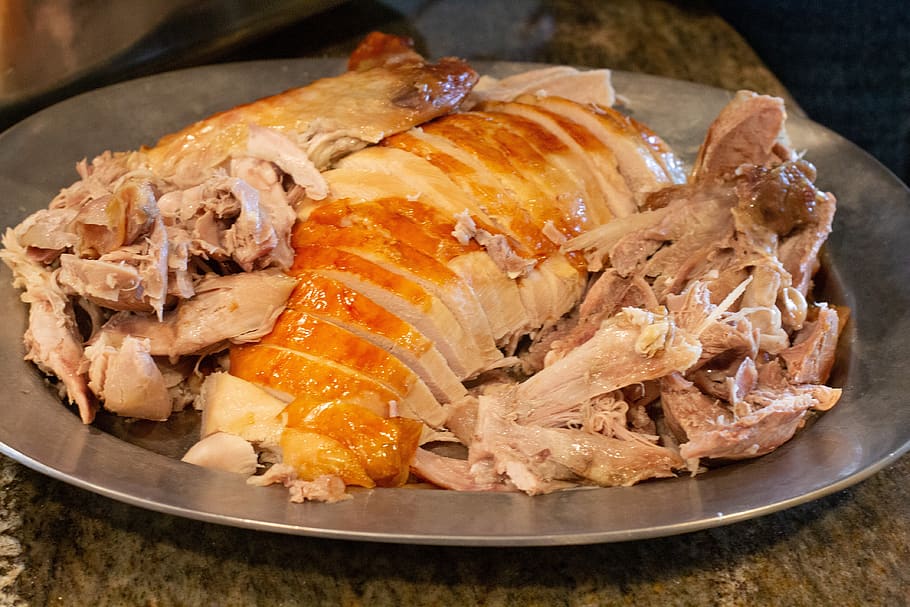
Yes, ferrets can eat raw or uncooked turkey meat. Turkey is a very good source of top-quality protein and fat for ferrets and also provides them with vitamins and minerals. Ferrets can be fed all body parts of a turkey carcass and they also love to consume organs including the heart, liver, and gizzard. Tukey organs are considered to be far more nutritious to ferrets than the meat itself.
But you should avoid cooked or seasoned turkey meat because it can upset the gastrointestinal tract of a ferret. However, ferrets can technically eat deli turkey but only occasionally and as a special treat. Turkey necks are one of the preferred parts that ferrets like to eat and they also cost less compared to other body parts and you can regularly feed them.
Never feed preserved or cured turkey meat to your ferrets as the seasonings and salt present in it can lead to different health problems in them.
Can Ferrets Eat Raw Chicken
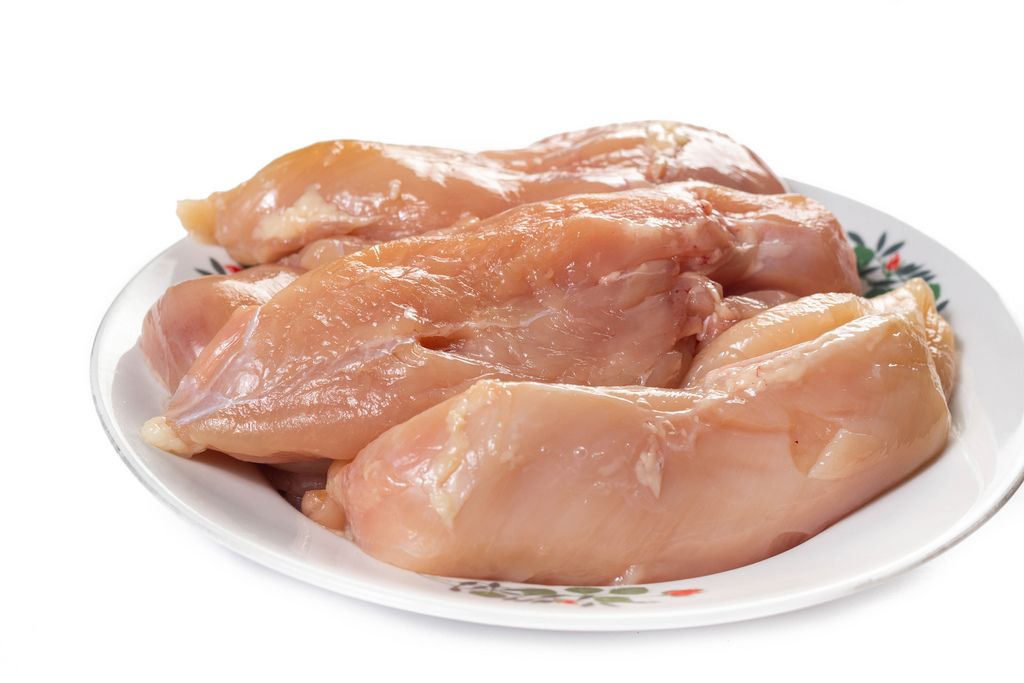
Chicken is an excellent meal to feed to your ferret regularly, and it will benefit greatly from it. Since ferrets are carnivores, in the wild they typically eat meat from rodents and birds that closely resembles chicken.
Chicken meat has a good protein ratio and contains a decent amount of fat, which ferrets require for energy and growth. A ferret’s body needs riboflavin, niacin, biotin, pantothenic acid, B6, B12, potassium, and magnesium, all of which are abundant in chicken.
The debate over whether to feed ferrets raw or cooked chicken is complicated, but you should feed them food that resembles their natural diet which in this case is raw chicken. For ferrets, raw and freeze dried chicken is much more nutrient-dense than cooked chicken and it has higher digestibility.
The protein structure of chicken is broken down during cooking, reducing the meat’s nutritional value for ferrets. All chicken parts, including the giblets, are safe to feed to ferrets because they are nutrient-rich and filling. In fact if you are feeding your ferret a substantial amount of raw meat, it is important to include internal organs into their diet.
Can Ferrets Eat Peanut Butter
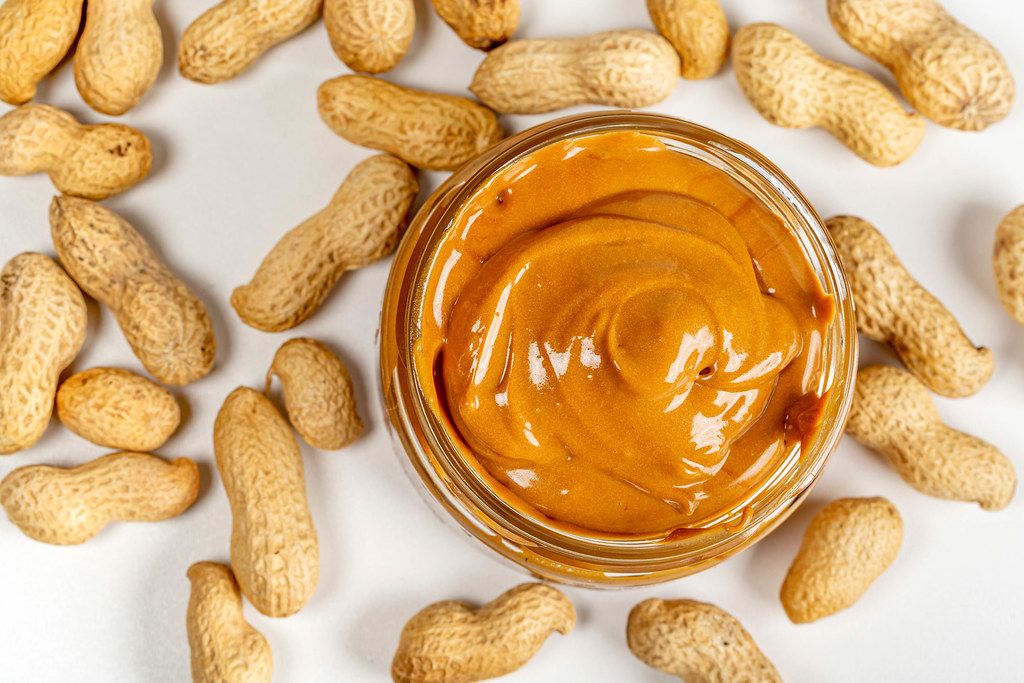
Ferrets can eat peanut butter but it is not recommended because it is frequently flavored and contains salt and sugar. While the salt in peanut butter can result in an imbalance of sodium ions in the body and increased urination, the sugar in peanut butter can result in high blood sugar levels, dental issues, and weight gain.
Additionally, peanut butter contains a lot of carbohydrates that a ferret’s stomach cannot properly digest, and they can lead to weight gain as well. However, you can only give it to them in minuscule amounts to cover the taste of any medication they won’t take otherwise.
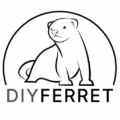

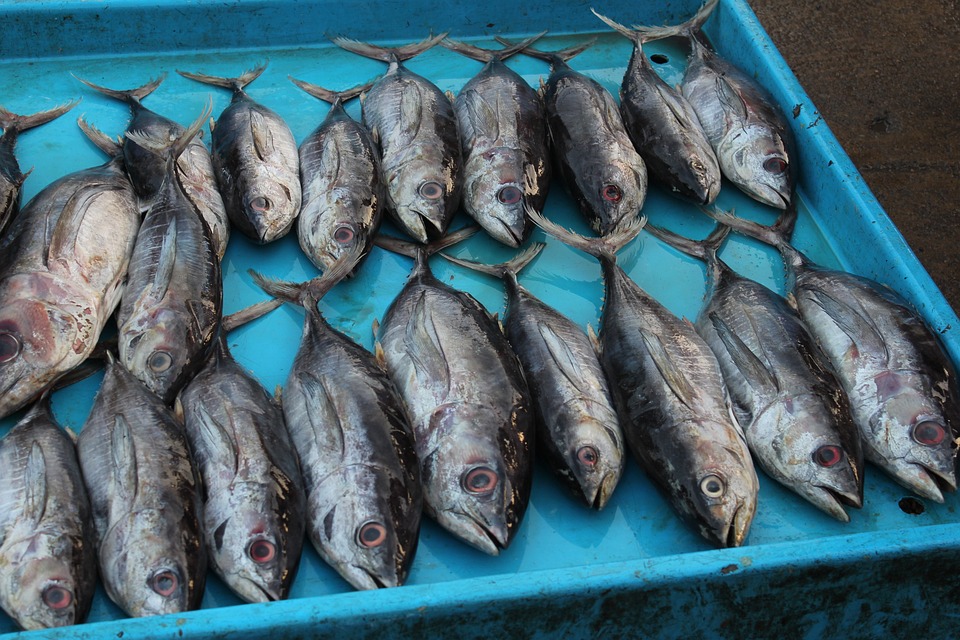
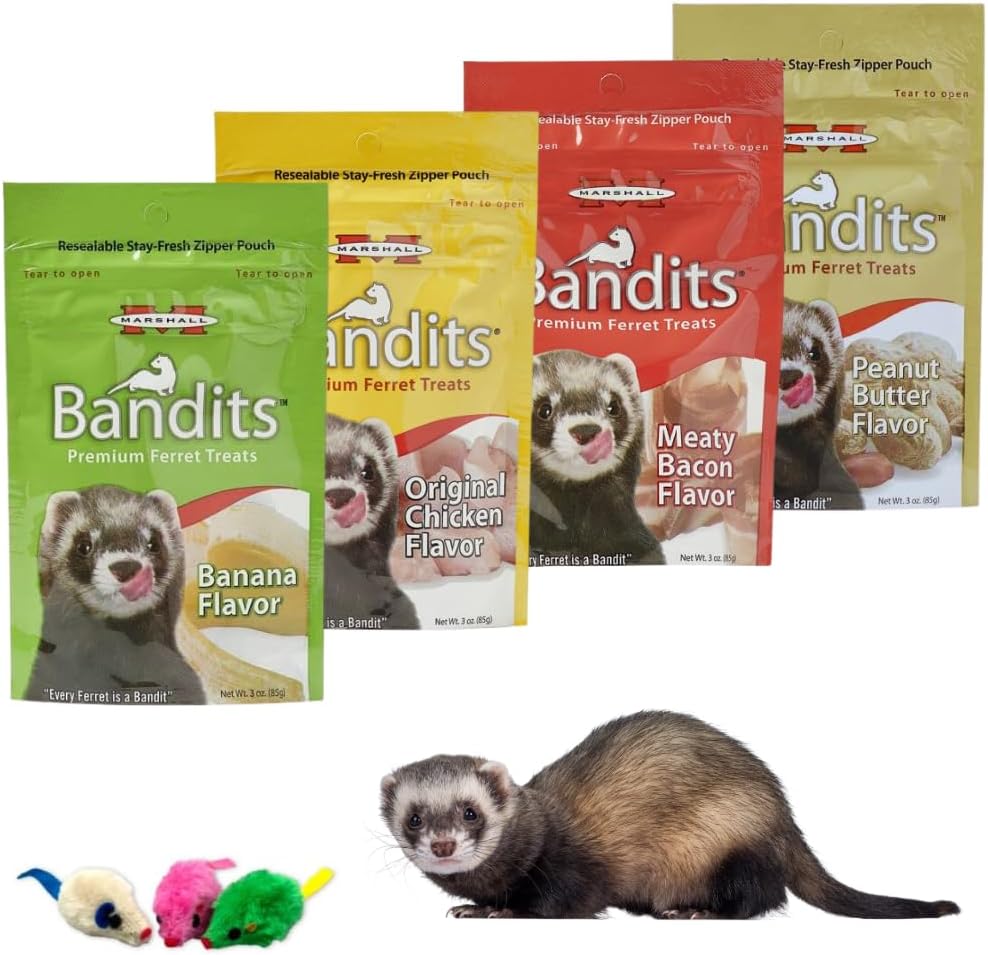
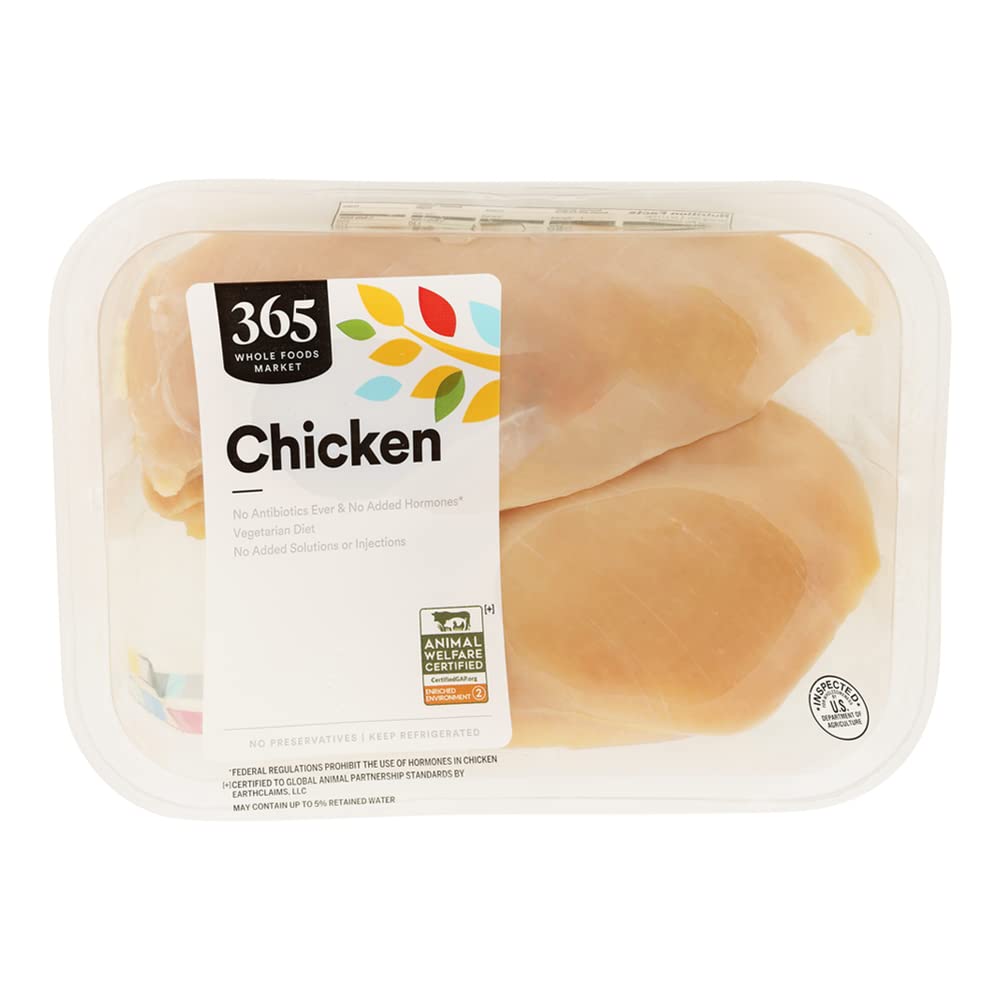
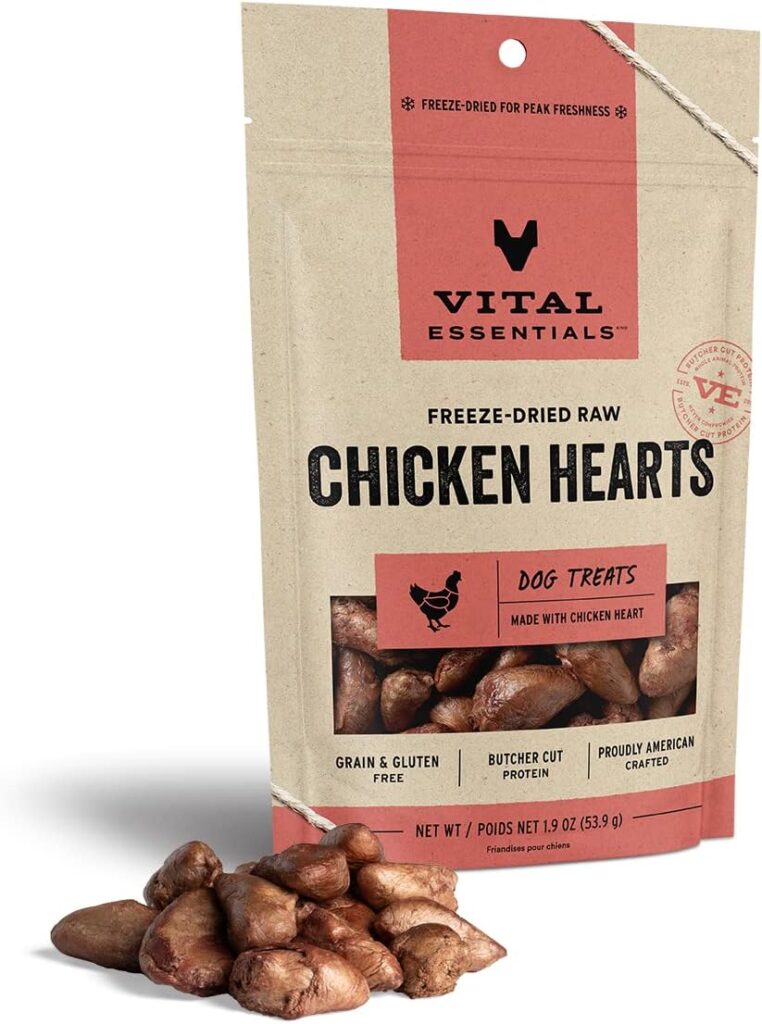

Pingback: The angora Ferret: Everything You Need to Know | DIY Ferret